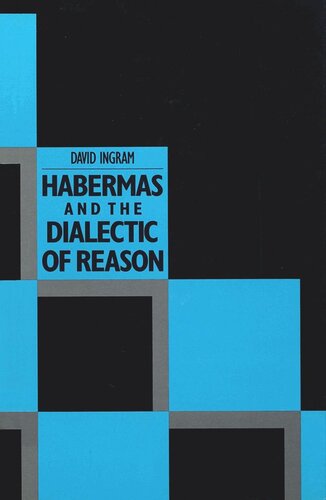

Most ebook files are in PDF format, so you can easily read them using various software such as Foxit Reader or directly on the Google Chrome browser.
Some ebook files are released by publishers in other formats such as .awz, .mobi, .epub, .fb2, etc. You may need to install specific software to read these formats on mobile/PC, such as Calibre.
Please read the tutorial at this link: https://ebookbell.com/faq
We offer FREE conversion to the popular formats you request; however, this may take some time. Therefore, right after payment, please email us, and we will try to provide the service as quickly as possible.
For some exceptional file formats or broken links (if any), please refrain from opening any disputes. Instead, email us first, and we will try to assist within a maximum of 6 hours.
EbookBell Team

4.4
62 reviewsIn his magnum opus, Theorie des kommunikativen Handelns, the distinguished philosopher Jurgen Habermas presented his ideas as a whole, providing the first major defense of his philosophy. David Ingram here summarizes the themes of Habermas's masterwork, placing them in the context of the philosopher's other work, relating them to poststructuralism, hermeneutics, and Neo-Aristotelianism, and surveying what other critics have said about Habermas.
"Ingram's exposition of Habermas is impressive for its erudition and its faithful adherence to the major contours of Habermas's work."—James Farganis, Contemporary Sociology
"A valuable contribution to the understanding of an important, but difficult, thinker."—Ethics
"The book is indispensable to an understanding of both Habermas and the contemporary human condition."—Scott Warren, Social Science Quarterly
"Ingram has done sociologists, philosophers, and political scientists a great service by demystifying Habermas's more recent theory of communicative action."—R. George Kirkpatrick, American Journal of Sociology
"Likely to be and to remain the leading study on Habermas's Theory of Communicative Action. What McCarthy did for Habermas's earlier writings, Ingram accomplishes for his more recent work."—Fred R. Dallmayr, University of Notre Dame